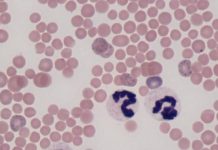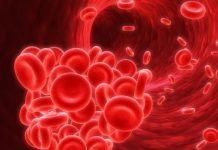Have you been feeling tired lately? Maybe you’ve noticed some headaches or that you’re having trouble thinking clearly. You could be suffering from anemia.
When you have anemia, you do not have enough healthy red blood cells in your body.
Red blood cells are important because they contain hemoglobin. Hemoglobin is a protein that is rich in iron, and carries oxygen to the various parts of the body.
Without enough oxygen, the cells in your body cannot function properly. While fatigue and weakness are the most common symptoms of anemia, severe anemia can even cause shortness of breath, an increased heart rate, and even a heart attack.
Anemia has a number of causes, from genetic causes, to medications, to loss of blood. The two most common inherited types of anemia are sickle cell anemia and Cooley’s anemia, also known as Thalassemia.
Anemia is a common side effect of chemotherapy and radiation treatment for cancer, as these treatments affect the bone marrow’s ability to produce red blood cells.
In a healthy individual, the body is constantly producing new blood cells to replace the ones that wear out and are removed from the body every day.
When the body’s ability to produce new blood cells is suppressed, as when you receive chemotherapy or radiation, production of new cells cannot keep up with the natural loss of red blood cells that occurs every day, leading to anemia. Rheumatoid arthritis and other chronic inflammatory conditions can also cause anemia.
The loss of blood can also cause anemia. Women are at greater risk for anemia than men because of monthly blood loss due to menstruation cycle. Pregnancy and childbirth are also risk factors. Some people have gastrointestinal illnesses, such as ulcers that may involve a loss of blood.
Anemia can typically be diagnosed through a simple blood test. If you are found to be anemic, your doctor can help you determine the underlying cause, and determine appropriate treatment. This may include correcting vitamin or iron deficiencies, changing medications, or even blood transfusions as a last resort.













